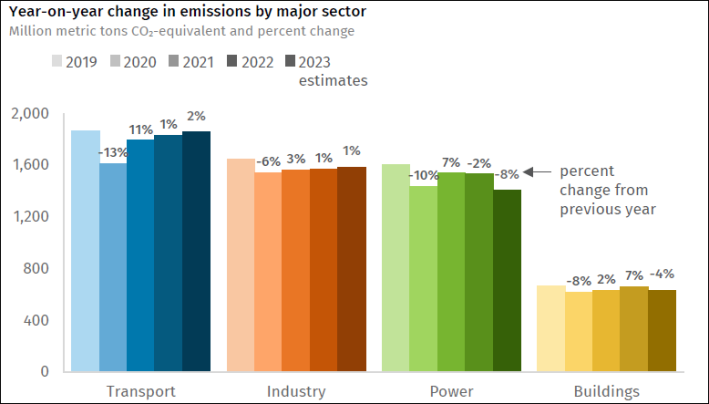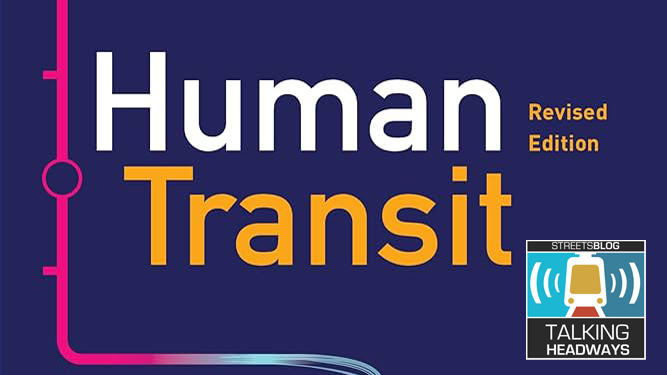Emissions by drivers and auto manufacturers are undermining promising gains on other fronts in America’s fight against climate change, new estimates suggest — but many policymakers are still unwilling take action to reduce how much we drive cars.
According to preliminary estimates released last week from the Rhodium Group, transportation was, once again, the single biggest contributor to America’s total emissions in 2023, rising 1.6 percent from 2022 even as overall emissions fell 1.9 percent nationwide over the same period. Much of that increase has to do with growing demand for air travel, but advocates point out that the drivers of light-duty vehicles collectively produce around 14 times more annual pollution than passengers on planes.
Together with the industrial sector, whose emissions rose 1 percent as well, the transportation sector undercut what should have been a revolutionary year for the power sector, which slashed its numbers 8 percent in at the last 12 months alone by continuing to phase out coal and shift to cleaner energy sources.
“To meet the Paris target, the U.S. needs to average a 6.9-percent emissions reduction every year from 2024 through 2030 — more than triple the 1.9-percent drop in 2023,” the Rhodium authors wrote. “We’ll be watching to see if the U.S. can sustain and accelerate its 2023 emissions decline in 2024 and beyond.”

As staggering (and unfortunately familiar) as the transportation sector’s dismal emissions numbers are, some advocates say they don’t even tell the whole story of how car culture is tanking our hopes to save the planet.
In a recent article, a team of researchers at climate think tank RMI pointed out that while tailpipe emissions are bad enough on their own, car and truck drivers are also responsible for a huge portion of America’s industrial emissions, because of the massive amount of energy required to manufacture their vehicles in the first place. And when you put the two together, motorists were responsible for staggering 40 percent of all U.S. climate pollution in 2019, the most recent year for which data is available.
Those numbers are likely even worse today as SUVs get increasingly bigger and less efficient to produce. One recent study cited by RMI found that pollution could have been 6 percent less between 2010 and 2022 if cars had stayed the same size, even as fuel economy fell across many models. And that’s not even accounting for any potential decreases in walking and biking that may have occurred as pedestrians grew increasingly afraid of being crushed by a mega-car.
RMI stresses that there’s still time for the transportation and industrial sectors to clean up their act — and it starts with governments setting aggressive goals to reduce vehicle miles traveled, rather than relying on vehicle electrification alone.
“Will state DOTs respond with the same old projects that increase driving, lock-in emissions, drive up costs, and threaten lives?” the RMI team wrote. Or will they instead increase mobility choice and invest not in cars, but in people? By choosing the latter, everyone — drivers included — will be better off.”
Correction: An earlier version of this story misstated the amount of pollution that could have been avoided if cars remained the same size. The error was due to an error reported by another publication to which Streetsblog linked. That error was caught by Streetsblog contributor Charles Komanoff.





